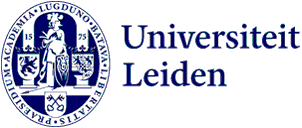
Executive Board column: From the outside looking in (and vice versa)
We know more together than alone. To increase our university’s impact on the region, we have to be open to the world outside. This is how we strengthen our ties and create new opportunities for teaching and research.
In this column Annetje Ottow, Hester Bijl and Martijn Ridderbos give a peek behind the scenes at the Executive Board of Leiden University. What does their work involve? What makes them enthusiastic? What challenges do they face? Building a healthy and engaged learning community begins with sharing what you are up to. This time it’s Annetje Ottow’s turn.
Inside-out thinking is in my DNA. As a professor, even before I became an administrator, I made my knowledge available to various partners in society: from ministries to NGOs. That was my way to increase my impact. I still do so today by constantly holding forth to an array of parties about what fantastic experts we have here: students and staff alike.
Partners in society
But it is also important to look from the outside in. The big challenge is how to ensure that our knowledge and teaching meet the needs of those around us. We can do so by strengthening our ties in the region.
In the Province of Zuid-Holland our university has a growing number of partners in society. We create impact through countless partnerships in the region: the Leiden-Delft-Erasmus (LDE) strategic alliance, for example, or the Medical Delta consortium. With the aid of PLNT, LURIS or LEH, we start new companies at the Bio Science Park and faculties, and work together with various companies and local and regional government. We have joined forces with the Municipality of Leiden, University of Applied Sciences Leiden, MBO Rijnland and Naturalis Biodiversity Center as Leiden City of Knowledge and work together on socially relevant projects in the areas of health, biodiversity and cultural heritage. As our university’s president, I represent us in these partnerships and look at how we – together with our partners – can contribute to social developments in the region.
"Our regional ecosystem might be complex, but this offers considerable opportunities."
Go outside
Our university is rooted in the cities of Leiden and The Hague and is part of this regional ecosystem. The big question is: how can we use our research and teaching for the benefit of the region? The good news is that our regional ecosystem might be complex but this offers considerable opportunities.
And that is my invitation to our researchers, lecturers and students: how can you help make our region stronger, greener and healthier? Could you conduct research, for example, into polarisation in the province? Or could you use your knowledge to help increase biodiversity in the city of The Hague? This is something our researchers are discussing with the municipality and province. You can, of course, literally go outside, as our colleagues are doing at Polderlab in Oud Ade, where they are looking for innovative and sustainable farming methods. But you could also join a taskforce or offer your knowledge to a regional startup. The synergy between our university and society provides so much inspiration!
I would urge starting researchers to focus on building your network. See if you can join an interdisciplinary programme, sign up for a Young Academy Leiden event or give a lecture yourself. There are many colleagues at our university who can help: feel free to take advantage of their knowledge and experience.
Pressure cooker
The Province of Zuid-Holland is a kind of pressure cooker where all that is going on in our country comes together. Creating strategic links between all the networks and our university is a great challenge. This makes me glad to have so many colleagues who can help. Such connections are something I wish for everyone: our work is much more fulfilling when we do it together.
Share your thoughts or experiences by sending an email to nieuws@leidenuniv.nl.
